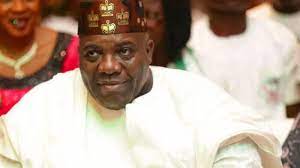An Environmentalist, Mr Nnimmo Bassey, has urged the All Progressives Congress’ (APC) led Federal Government to restructure the Ecological Fund Office to address environmental challenges in the country.
Bassey said at a presentation on “Towards an Environmental Action Plan 2015- 2019’’ at a two-day 9th Global Environment Facility (GEF) National Steering Committee Meeting in Abuja.
He said that the All Progressives Congress (APC) had in its 8-point Manifesto outlined how it would address environmental challenges and ensure environmental sustainability.
According to him, the APC government should deliver on its Manifesto and promise to restructure the Ecological Fund Office in the presidency.
“ I have studied the manifesto; point six states that the party will restructure the Ecological Fund Office (EFO) and that is important in addressing environmental challenges.
“Ecological Funds have been used as political funds, as campaign funds. It is important to restructure it and put in the right ministry.
“If it (EFO) is restructured and domiciled in the Federal Ministry of Environment, it will be more effective than when it is domiciled in the Presidency.’’
Bassey, said that it would also be good to ensure full compliance with town planning and environmental laws as stated in the party’s Manifesto.
Bassey, a Director, Health of Mother Earth Foundation, an NGO, said that Nigeria had good environmental laws but lacked the political will to implement them.
However, he said the party should try to review some points contained in the Manifesto to make it encompassing in addressing the challenges.
For example, he said that the point one in the Manifesto was not holistic as it stated that it would ensure compliance to policies to halt pollution in waterway.
“This is directed toward achieving water pollution alone. What about other types of pollution such as air and land? How will they address them? Addressing water pollution alone is a big defect.
“Also, creating volunteer teams to nurture economically viable trees as stated in point five of the document should be reviewed not to consider economic trees alone but other aspects of tree planting,’’ Bassey said.
The expert, however, urged the Civil Society Organisations (CSOs) and Non-Governmental Organisations (NGOs) to situate the Manifesto of the party in context of the challenges in the environment sector.
He said that the CSOs and NGOs should help the party to come up with a holistic road map that would help to address environmental challenges through their advocacy work.
Bassey said that government at all levels should invest in obtaining good data as a means of achieving Environmental Action Plan (EAP) in the next four years.
“Every government should invest in obtaining good data so that when you are doing your monitoring and evaluation later, you will be able to know how things are going.
“Consultation has to be done on baseline studies to find out what the root causes of threats to the environment are.
“Under baseline study, you must do environmental mapping, identify environmental threats and knowledge base.
“The plan must not only be designed but it must be communicated to the citizens for them to understand the content of the plan,’’ he said.
He said that government should also look at ways to address the plight of environmental refuges in the country.
Bassey said that Nigeria already had environmental refuges, saying that they are people that have left their places because of environmental disaster.
“This is the case of Ogoni people since 2014 when they experienced oil spill and after then, nobody can leave in the place anymore,’’ he said.
The News Agency of Nigeria (NAN) reports the stakeholders shared thoughts on land, water, forestry and biodiversity, climate change, pollution, and environmental health as well as legal and policy issues in the sector.














